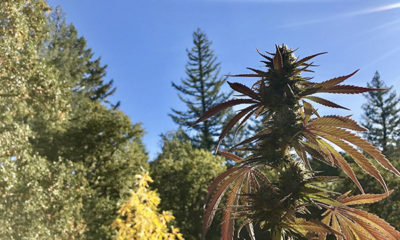
Joint Opinions
Canada Won’t Change Much Just Because Marijuana is Legal
Not much was stopping a Canadian who wanted to smoke cannabis prior to legalization.
Recreational marijuana becomes legal in Canada from ocean to ocean and from border to pole at 12:01 a.m. tomorrow morning, October 17.
This is a very big and significant deal (only one other country, Uruguay, has ever legalized adult-use marijuana on the national level) unless, of course, you are a Canadian who smokes marijuana.
In which case, your day-to-day life won’t really change all that much and neither will the lives of your friends, family members and neighbors who don’t use cannabis. The only difference is that in the interim, you may have purchased cannabis online — from a government-certified merchant rather than Craigslist or Silk Road.
For reasons why this milestone won’t be earth-shattering and paradigm-shifting, you need only look to data — and to the south, where similar epoch-making events have come and gone without a significant societal shifts. (Unless, of course, you are a former marijuana “offender” who has managed to clear your record.)
There are about 36.2 million people in Canada, a population a few million shy of California’s. Of these fine people, about 4.2 million used cannabis at least once in the past three months, according to results of a survey released earlier this year. According to census figures printed this week by the New York Times, almost 43 percent of Canadians have tried cannabis at least once.
Judging by these figures, it would appear that prior to legalization, marijuana use was neither rare nor taboo. There wasn’t much stopping a Canadian who wanted to smoke marijuana prior to legalization.
All this to point out what should be the obvious: Canadians already smoke cannabis. They have been able to use medical marijuana for years. And for years before that, Canadians have had lax attitudes (certainly when compared to the United States) around the drug, which is frequently represented in media as a mostly harmless diversion.
Let’s look a bit deeper. About half of Canada’s avowed marijuana users (2.1 million people) report using cannabis either daily or weekly. They have done this in a market where illegal storefront dispensaries have operated with varying levels of ease and openness for several years, and where medical cannabis patients have been mailed legal marijuana from state-licensed companies for about a half-decade.
Again, you can make a strong argument that cannabis was already readily available in Canada before legalization. After legalization, it will also be available, in a fashion a little more welcoming to the 9-to-5 toiler who wouldn’t buy a toaster off of eBay, let alone a bag of leafy green terpene-laden material from a stranger.
But the best evidence that Canadian life will continue on much as it did before — except with maybe more weed, procured more easily — can be found in the United States. According to a national survey, more than half of American adults have used marijuana at least once.
In Colorado, which legalized cannabis in 2012 and began over-the-counter sales in 2014, use rates among youth did not change much because, according to social scientists, the state already had a “robust medical marijuana industry.” Compare that to Canada, which has dozens of companies shipping the stuff literally all over the world, which had rogue storefronts selling cannabis over the counter in cities, where plenty Canadians had no trouble getting high.
“I don’t think we are going to see a dramatic increase of cannabis use, maybe just at first because of the novelty factor,” Geraint Osborne, a sociology professor at the University of Alberta, told the New York Times.
This is not to say that legalization is insignificant. As the Times wrote in the same article suggesting strongly that cannabis is already a common sight in Canada, “Some people think legalization will bring enormous changes not just to Canada, but to the rest of the world.” And hopefully, it will. More tax revenue. Fewer people in jail. Less policing. A capture of the black market to the regulated market — but will it change behavior, will it change society?
There is no data and there is no precedent to suggest that. Canadians will keep smoking, or vaping, or making tinctures in the way they did before. More Canadians may try cannabis and fewer may drink alcohol.
But capitalism will not fall, the bonds keeping society together will not break and mayhem will not be unleashed upon the world. Ask a Californian about their daily routine before legalization. Ask a Coloradan. It has not changed.
TELL US, do you think legalization where you live would change your cannabis consumption habits?























